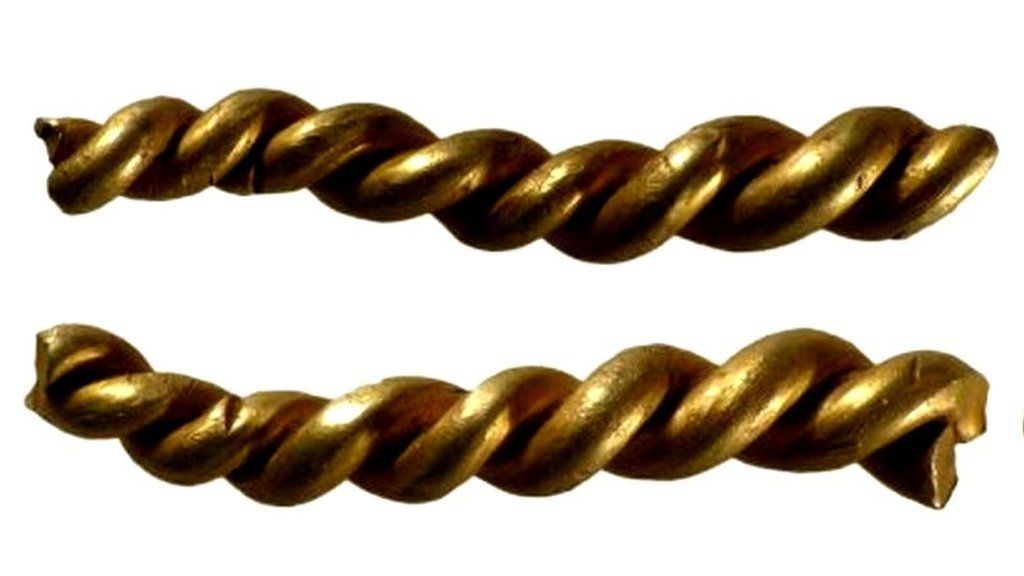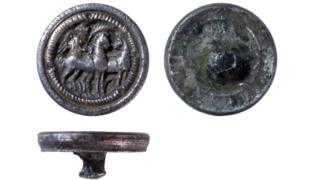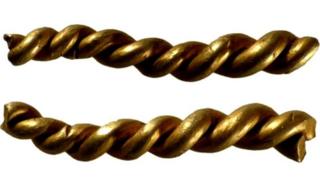Stud found in Walsingham links to East Anglia’s Roman past – BBC News

 Image copyright British Museum
Image copyright British Museum A silver stud found buried in a Norfolk village commemorated the quashing of Queen Boudicca’s rebellion, an expert said.
Researcher Jacqueline Cahill Wilson said the stud, found in Walsingham, may have come from a Roman horse harness.
It could have belonged to the troops who were stationed at a Roman town, now Caistor St Edmund, during the Iceni army’s uprising in AD61, she said.
The stud is now likely to go on display at the Castle Museum in Norwich.
 Image copyright British Museum
Image copyright British Museum The stud features a rivet on the back, designed to keep it in place.
It has an outer border around a depiction of Victory, facing right and holding a palm, with two horses.
Ms Cahill Wilson, from the department of archaeology and anthropology at the University of Bristol, said: “It is probably no coincidence that it was found in Walsingham given the role of the Iceni and Boudicca in the uprising in AD61.
“This may in fact have commemorated in some way the suppression of that rebellion.”
The stud was declared as treasure by Norfolk coroner Jacqueline Lake.
At the inquest in Norwich, Mrs Lake also declared two gold fragments found at Forncett, near Long Stratton, were treasure.
They could have come from a neck torc or precious bracelet, deliberately broken up and hidden, the inquest heard.
Experts said they dated back to between 50 and 150BC and belonged to someone wealthy from the Iron Age or early Roman periods.
Norwich Castle Museum has expressed an interest in acquiring both of the treasures, the inquest was told.
Boudicca, a warrior queen
- Boudicca was queen of the Iceni people of eastern England and led a major uprising against occupying Roman forces
- She was married to Prasutagus, ruler of the Iceni people of East Anglia
- When Prasutagus died, the Romans decided to rule the Iceni directly and confiscated the property of the leading tribesmen
- In AD60 or 61, while the Roman governor Gaius Suetonius Paulinus was leading a campaign in north Wales, the Iceni rebelled
- Boudicca’s warriors successfully defeated the Roman Ninth Legion and destroyed the capital of Roman Britain, then at Colchester. They went on to destroy Londinium (London) and Verulamium (St Albans)
- Boudicca was defeated by a Roman army led by Paulinus. She is thought to have poisoned herself to avoid capture. The site of the battle, and of Boudicca’s death, are unknown
Source: BBC History
Read more: http://www.bbc.co.uk/news/uk-england-norfolk-37221815